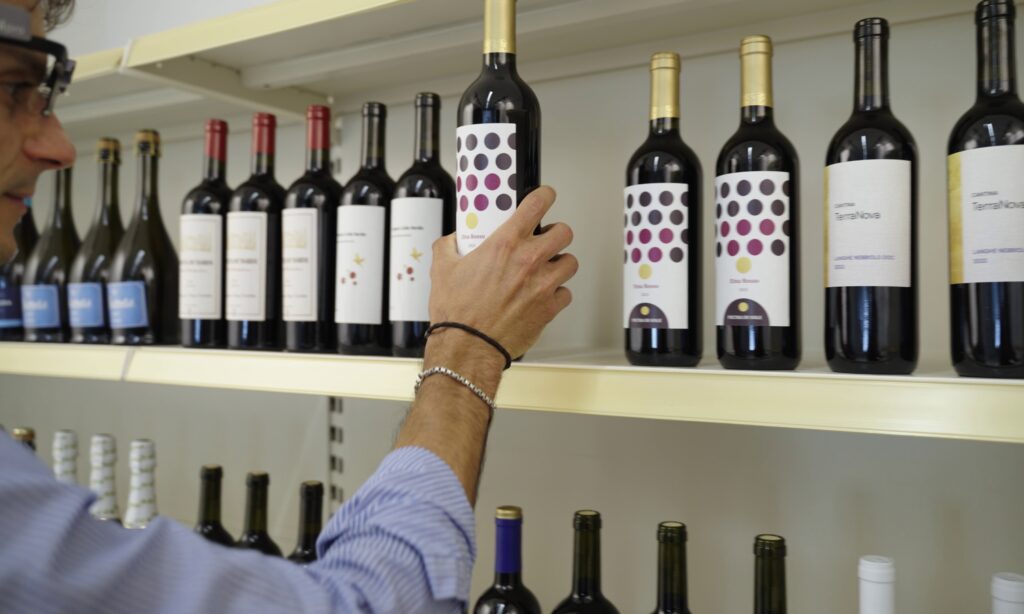Download
A UNIQUE STUDY DEMONSTRATES ITS INFLUENCE ON WINE PURCHASE DECISIONS
A SCIENTIFIC STUDY TO EXPLORE THE EMOTIONAL AND PERCEPTUAL IMPACT OF CAPSULES ON WINE CONSUMERS
While its functional role is well established, the capsule had until now remained a blind spot in wine marketing. Crealis Group wanted to measure, beyond its protective functions, the impact of the capsule on consumer perception: perceived value, shelf appeal, and influence on purchase. The study, carried out by SenseCatch, combined cutting-edge technologies (eye-tracking, bio-tracking) with qualitative interviews. Thirty regular wine consumers (aged 25–50, all decision-makers in wine purchases) were observed in a simulated shopping experience in a wine aisle. They were presented with bottles of red wine (fictitious brand) with and without capsules, and sparkling wines (fictitious brand) with and without foils. Then, interviews and tastings assessed their relationship with encapsulated bottles, enabling a semantic analysis of the vocabulary used to describe wines with and without capsules.
PREFERENCE AND ADDED VALUE: THE CAPSULED BOTTLE WINS One of the first lessons from this study is the decisive role of the capsule in the purchase of a bottle of wine, whether still or sparkling. In 9 out of 10 cases, consumers prefer bottles fitted with a capsule — an almost automatic choice for sparkling wines.
On store shelves, bottles with capsules or foils attract more attention compared to bottles without them. Their design strengthens the perception of the bottle’s quality. According to SenseCatch, this impact is reflected in the perceived value of the bottle and its price positioning. A bottle with a capsule is, on average, expected to have a higher price than the standard reference price. Participants associated capsules with a product that is “more prestigious,” “safer,” and “of superior quality.” As one consumer summarized: “Without it, the bottle looks unfinished, even neglected.” More than just an aesthetic detail, the capsule also influences the tasting experience: wine sealed with a capsule was judged more pleasant and persistent.
AN EMOTIONAL AND SENSORY DIMENSION TOO OFTEN UNDERESTIMATED Biometric measurements revealed that the capsule triggers a strong emotional response. Its texture, shine, color, or personalization immediately create a sensory attachment, reinforced when handled. Beyond the purchase, the capsule enhances the unsealing moment and the tasting ritual. For red wines, where the opening is not covered by a flush cork, the capsule mainly influences perceptions of hygiene and safety. For sparkling wines, it reinforces impressions of value and prestige.
CAPSULE AND LABEL: A WINNING DUO The study also highlights the importance of visual coherence between capsule and label, a key factor for shelf recognition. A capsule that is well integrated into the overall design strengthens brand identity and improves recall. Personalized capsules significantly increase perceptions of premiumization, differentiation, and desirability. On shelves, colored or metallic capsules capture more attention, confirming their role as a visual magnet.
A STRATEGIC ISSUE FOR THE WINE INDUSTRY These results confirm what packaging professionals long suspected: the capsule is much more than a decorative detail. It is a tool for selectivity, perceived value, and emotional engagement. In the context of wine premiumization and intense shelf competition, this element becomes a central piece of design and storytelling. “We wanted to objectify what many already sensed intuitively,” explains Isabelle Gruard, Group Marketing and Communications Director at Crealis. “This study shows that in the world of wine, every detail counts — and the capsule, in particular, belongs in the product mix as a genuine marketing tool.”
|
About Crealis Group
Crealis is the global leader in closure solutions for still and sparkling wines, spirits, beers, water, olive oil, and vinegars. The group draws on the solid reputation and expertise of 8 renowned brands: SPARFLEX, LE MUSELET VALENTIN, ENOPLASTIC, RIVERCAP, MAVERICK, PE.DI, SUPERCAP, and CORCHOMEX, each contributing unique know-how.
The group employs 1,300 people worldwide across 13 production sites: 3 in France, 3 in Italy, 1 in Portugal, 2 in Spain, 2 in the United States, 1 in Australia, and 1 in Mexico. Crealis operates in more than 70 countries worldwide.
Crealis
Isabelle Gruard – Group Marketing Director ( isabelle.gruard@crealisgroup.com )

